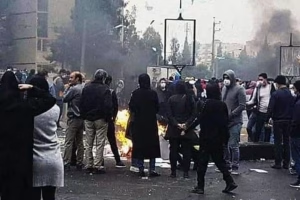Hyderabad: On this day in 1919, the sacred soil of Amritsar was stained with the blood of innocent Indians in what remains one of the most brutal episodes in colonial history- the Jallianwala Bagh massacre.
As India observes the anniversary of this dark chapter, it is a moment of reflection on the profound sacrifice that galvanized an entire nation’s determination to fight for independence.
The annual commemoration is not merely a remembrance of lives lost but a tribute to the spirit of resistance that emerged from the tragedy. The incident has altered the course of India’s freedom movement and igniting the fire of patriotism for decades to come.
The Jallianwala Bagh massacre occurred against the backdrop of mounting unrest across India, driven by widespread resentment toward the repressive Rowlatt Act of 1919.

The draconian legislation, imposed by the British colonial administration, gave authorities the power to arrest and detain any individual without trial- a blatant violation of civil liberties.
On April 13, 1919, thousands gathered peacefully in Amritsar’s Jallianwala Bagh to protest the arrests of nationalist leaders Dr. Saifuddin Kitchlew and Satyapal under the Rowlatt Act. Unaware of the looming horror, families, workers, and ordinary citizens assembled on the Baisakhi festival day to express solidarity.
Without warning or provocation, British Brigadier General Reginald Dyer ordered his troops to block the exits and open fire on the unarmed crowd.
For ten harrowing minutes, bullets rained down upon the men, women, and children trapped within the walled enclosure. The official British inquiry, the Hunter Commission, claimed 379 people were killed.
However, the Indian National Congress’s independent investigation estimated over 1,000 fatalities and more than 1,500 injured.
We pay homage to the martyrs of Jallianwala Bagh. The coming generations will always remember their indomitable spirit. It was indeed a dark chapter in our nation’s history. Their sacrifice became a major turning point in India’s freedom struggle.
— Narendra Modi (@narendramodi) April 13, 2025
The atrocity at Jallianwala Bagh sparked nationwide outrage and marked a decisive turning point in India’s struggle for independence. It exposed the sheer brutality of British colonial rule to the global stage and shifted the Indian freedom movement toward mass civil disobedience.
Mahatma Gandhi, deeply disturbed by the carnage, intensified the non-cooperation movement, which became the bedrock of India’s nonviolent resistance. The massacre united Indians across regions and religions in their shared grief and growing determination to end foreign rule.
Today, the Jallianwala Bagh Commemoration Day is a solemn reminder of the sacrifices made in the pursuit of justice, liberty, and self-determination.
It serves as a poignant symbol of the consequences of unchecked power and the resilience of the human spirit in the face of oppression.


























